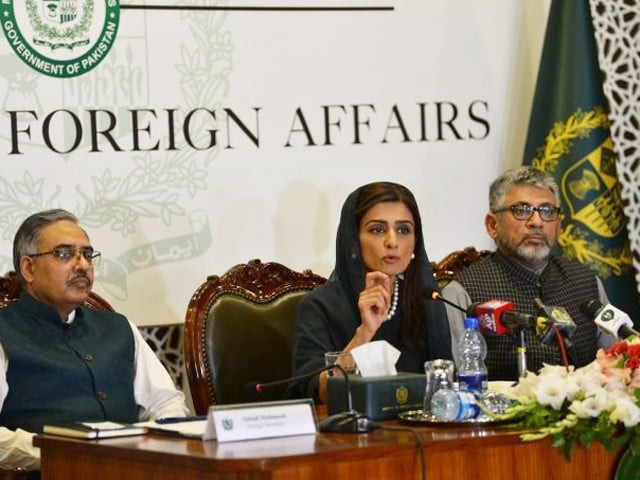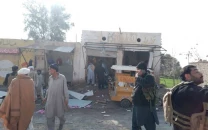Pakistan urges enhanced D-8 economic ties
In address to council of ministers, Khar calls for creating private sector coordination facility

Minister of State for Foreign Affairs Hina Rabbani Khar called on Wednesday for creating a 'Private Sector Coordination Facility' to boost economic cooperation among the Developing-Eight (D-8) countries.
Khar spoke virtually at the 20th session of the D-8 Council of Foreign Ministers, hosted by Bangladesh, the Foreign Office said. She called for creating a conducive environment for trade through facilitative legal frameworks, and equal opportunities for investment and business.
Khar underscored that Pakistan's vision of geo-economics had socio-economic growth, connectivity, and development at its core. Through the cooperation and partnerships, the D-8 countries could realise their true economic potential.
Khar highlighted that Pakistan’s location afforded critical overland and maritime connectivity to key regions of Asia – Central Asia, South Asia, the Middle East and China – that made Pakistan among the most pivotal states in the world, geo-politically. “We were confident that through the China-Pakistan Economic Corridor (CPEC), this geo-political asset will rapidly turn into a geo-economic dividend.”
The Bangladesh foreign minister, in his capacity as the chair of the council of ministers, presided over the meeting. Foreign ministers of Turkiye and Iran, and minister of state of Nigeria, alongside senior officials from Egypt, Indonesia and Malaysia, also participated in the meeting.
The council meeting was preceded by the 45th Session of the D-8 Commission, which adopted a series of major decisions building on the progress achieved. One of the key decisions taken by the council was to fully operationalise the Preferential Trade Agreement by October 31, 2022 with a view to achieving the intra-D-8 trade target of $500 billion agreed under the Decennial Road Map 2020-30.
In recognition of the role of trade in enhancing economic cooperation, and to promote financial and payment systems, the meeting also agreed to operationalise within the next two years the D-8 Payment Card system, D-8 Clearing House, D-8 Qualified Industrial and Economic Zones, D-8 Creative Economy and Financial Centre, D-8 Halal Food Sector Cooperation, and D-8 Barter Trading System.
The ministers agreed to the need for enhancing financial and human resources for the D-8 Secretariat. The meeting also tasked the Secretariat to further review project proposals for financial support by the D-8 member states.
It acknowledged with appreciation the desire of Azerbaijan to become a member of the D-8. The ministers agreed to hold a special session of the D-8 Commission in October this year to make final recommendations with regards to the criteria for accession of new member states to the D-8. A report to the effect would be considered for adoption by the next council of ministers session.
The D-8 Group, established in Istanbul on June 15, 1997, includes Bangladesh, Egypt, Indonesia, Iran, Malaysia, Nigeria, Pakistan and Turkiye. The year 2022 marks the 25th anniversary of the establishment of D-8.
Based in Istanbul, the organisation is currently led by Ambassador Isiaka Abdulqadir Imam of Nigeria, who assumed the position of Secretary-General on January 1, 2022.
APP


















COMMENTS
Comments are moderated and generally will be posted if they are on-topic and not abusive.
For more information, please see our Comments FAQ